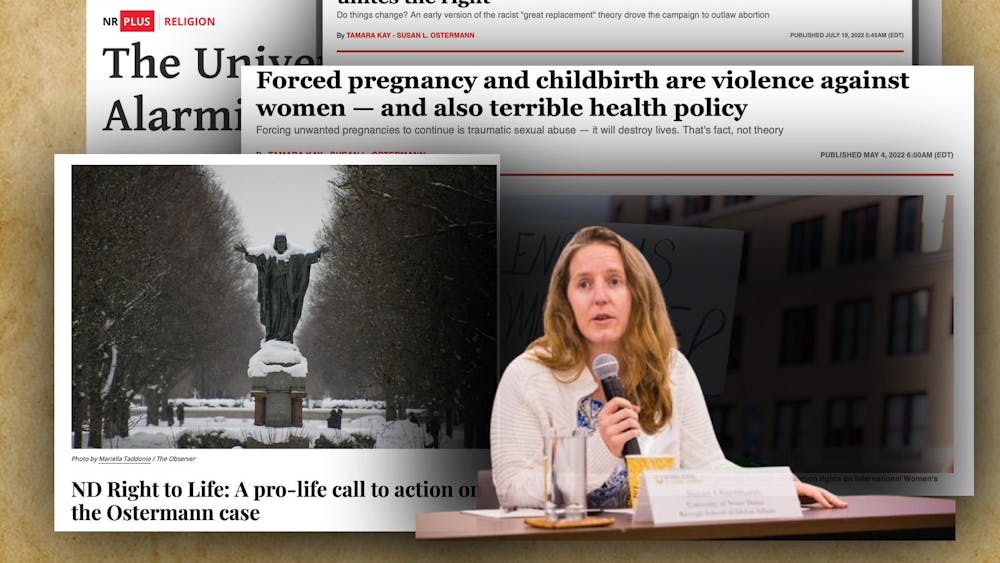As the first full month of the semester comes to a close and midterms are on the horizon, it is essential that mental well-being is a priority. The tri-campus community boasts a multitude of resources for student mental health, but it’s time to ask: are they enough?
In a winter 2021 survey sent to students by the McDonald Center for Student Well-Being, 90% of students surveyed expressed “some level of concern” about their emotional well-being. With this amount of demand, the tri-campus community must invest more time, money and resources into caring for the mental health of its students.
Right now at Notre Dame, the two most prominent resources for mental well-being are the University Counseling Center (UCC) and the McDonald Center, colloquially known as McWell. The UCC advertises free counseling services for all Notre Dame students as well as psychiatric evaluations and group counseling sessions. On its website, the UCC reports that approximately 16% of the Notre Dame student body utilizes its services every year, with 30% of students utilizing the center by the time they graduate.
Similarly at Saint Mary’s, students can find counseling services within the Angela Athletic and Wellness Complex. The Health and Wellness Center is located just inside the main south entrance of the complex. The Health and Counseling Center has four full-time counselors on staff who are available to assist students by appointment.
While the UCC serves an essential role on campus, it struggles to accommodate student demand for counseling and psychiatric care. Because of the limited number of counselors on staff and the high need for individual counseling, the UCC has encouraged residential hall staff and other campus leaders to direct their residents toward group counseling sessions instead of individual counseling this year. While group counseling can be helpful for some people, it’s often difficult to share mental health struggles with a professional, let alone a group of strangers.
Students who do receive time slots for individual counseling are met by the UCC’s care plan, which is built to find “brief, solution-focused treatment” for their emotional needs. And although the counseling at the UCC is advertised to students as free, it is only the first 12 sessions that are free of charge. The number of free sessions is the same at the Holy Cross Counseling Center. While this might be enough sessions for some, many students require more individual counseling than the brief plan that these centers are currently offering.
In contrast, the Saint Mary’s Health and Counseling Center only offers enrolled students up to eight free counseling sessions per semester. While students can receive care from their designated counselor throughout the semester, they can only schedule appointments every other week. This makes it difficult, especially for those who are experiencing acute issues, to see their counselor as regularly as they need. And while the counseling centers can offer referrals to off-campus services, the cost of individual counseling or therapy can become a major barrier to students receiving the care they need.
In order to support students fully, all three schools must direct more money and resources to make individual counseling more accessible to students. All students should have access to consistent, individual counseling for as long as they need it.
One possible step to improvement is to bring back the mental health days of the 2020-21 school year — keeping the current calendar but adding period days for students to maintain their mental well-being. It is already a practice for some professors to recommend their students take a mental health day or two if needed, but expanding the practice to apply to all classes would benefit students hesitant to take time for themselves and professors worried about telling students to skip class.
Recently in states such as Utah, Maine, Illinois, Nevada, Oregon, Colorado, Virginia and Arizona, legislative actions have passed to allow high school students to take mental health days. This trend of legislative action has continued into 2022 with Iowa, Kentucky, Missouri, Pennsylvania and the District of Columbia introducing measures in support of mental health days for students.
The tri-campus already has some helpful mental health resources, and it’s important to take advantage of them. But our three schools must do more, especially when it comes to the availability of individual counseling and mental health days. As it stands, the tri-campus is sending students the message that some mental health concerns are too big to handle. They shouldn’t be.









